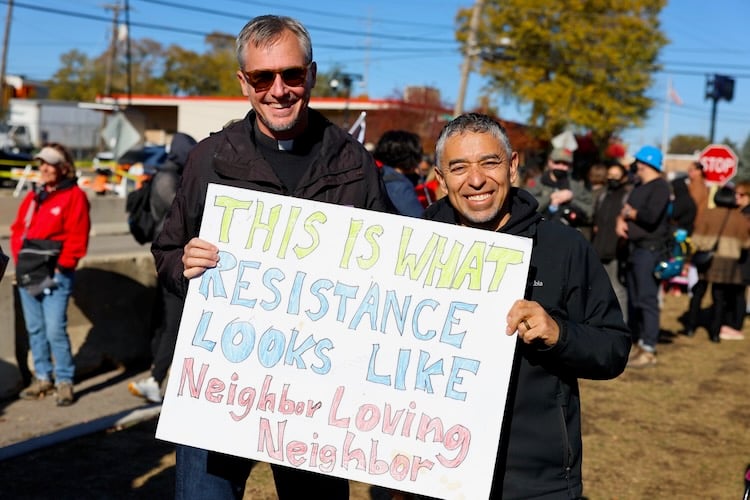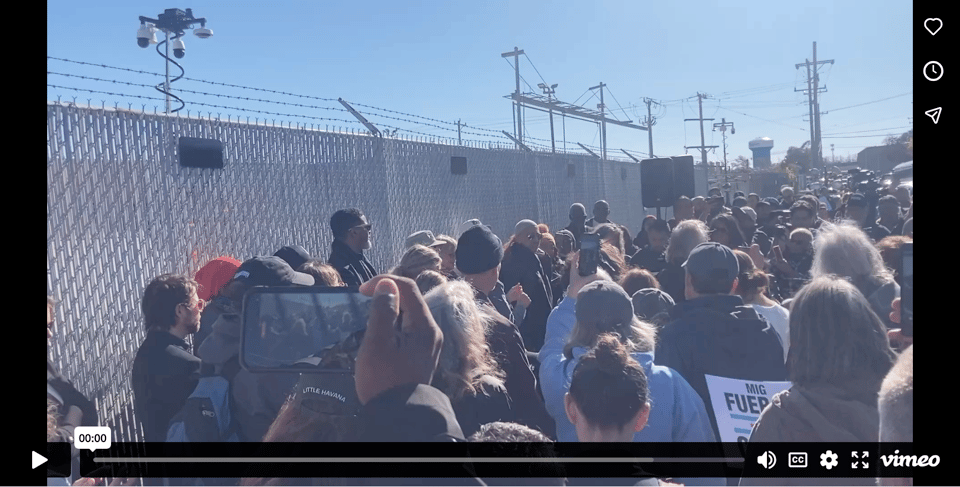Protesting People
Christians and our posture of dissent

Given the slide toward authoritarianism that the U.S. is experiencing, there have been a bunch of opportunities for people to engage in different forms of protest. As these opportunities have increased, I’ve overheard some Christians wondering how we should consider the act of protesting. Despite the urgency of the moment, some remain skeptical about whether participating in protest is theologically appropriate or practically effective. Others have jumped in with both feet, drawn by compassion or outrage but, from my vantage point, not especially reflective about how our faith shapes whether or how we protest.
As someone who has participated in many protests of many different kinds over the years, this is something I’ve thought about a lot. It seems to me that our Christian faith informs three themes related to the protests currently being organized around the country: our identity, our context, and our methods. In the next few newsletters I want to consider each of these themes, beginning with the first, our identity as a protesting people.
If protest is an act of dissent or disapproval, than fundamental to Christian identity is our instinct to raise our voices and situate our bodies in protest. Importantly, protesting for the Christian begins in prayer. In fact, it’s safe to say that Scripture portrays God’s people protesting God more than any specific person, government, or social system.
In response to God’s declaration that he will send his people away, Moses protests, “If your presence will not go, do not bring us up from here.” (Exodus 33:15) Jeremiah puts his protest in the form of questions, “Why does the way of the guilty prosper? Why do all who are treacherous thrive?” (Jeremiah 12:1) “Awake, Lord!” protests the psalmist. “Why do you sleep? Rouse yourself! Do not reject us forever. Why do you hide your face and forget our misery and oppression?” (Psalm 44:23-24) Jesus himself, in the language of Psalm 22, protests the excruciating abandonment and betrayal of the cross, “My God, my God, why have you forsaken me?”
None of these examples are only protest, of course; there is also grief, lament, and complaint. But isn’t that the nature of protest? Our dissent is not emotionless. Our disapproval is shaped by heartbreak, loss, and profound disagreement.
While Christian protest begins in prayer, it doesn’t end there. Esther, Daniel, Shadrach, Meshach, and Abednego each, in their own ways, used their voices and bodies to protest the empire’s abuse and coercion. Peter and the apostles, when commanded by the religious authorities to stop preaching in the name of Jesus, made their disapproval plain, “We must obey God rather than any human authority.” (Acts 5:29) The seven churches in Revelation are variously praised and warned based largely on how faithfully they dissented from the empire’s demand of worshipful allegiance.
What I’m suggesting about Christian identity is that protest is simply part of our posture toward God and the world. It will always be important to discern what, how, and when we protest, but not if we protest. We are a protesting people.
(I’m not sure there’s anything controversial about this claim. Years ago, during a college summer break, I worked for a large Southern Baptist church in the D.C. suburbs. During an evening event, I noticed a flyer posted prominently on a bulletin board in the fellowship hall promoting a boycott of the Walt Disney corporation. Honestly, I can’t remember the motivation for the boycott, but even then I noticed how normal it seemed for this suburban congregation to understand themselves as people who engage in certain forms of protest.)
That this moment requires protest from U.S. Christians seems obvious to me. The government’s mistreatment of vulnerable people and the way it cloaks its cruelty in the language of Scripture and the symbols of Christianity require our visible and audible dissent. The context for our protest is something I’ll consider next time. But for now, how are you living into your identity as a member of a protesting people during this chaotic season?
The View From Here

Speaking of protest, yesterday an interfaith group I’ve been participating with over the past few months organized a prayer service outside the Broadview Detention Center. This is the location where detained women and men are brought, ostensibly for quick processing but they are often kept for days under severe circumstances. Sadly, though not surprising, our group’s request to provide pastoral care for those being detained was denied. Here’s a quick video of one moment from the protest, as we sang “This Little Light of Mine.” Please remember the detainees in your prayers.